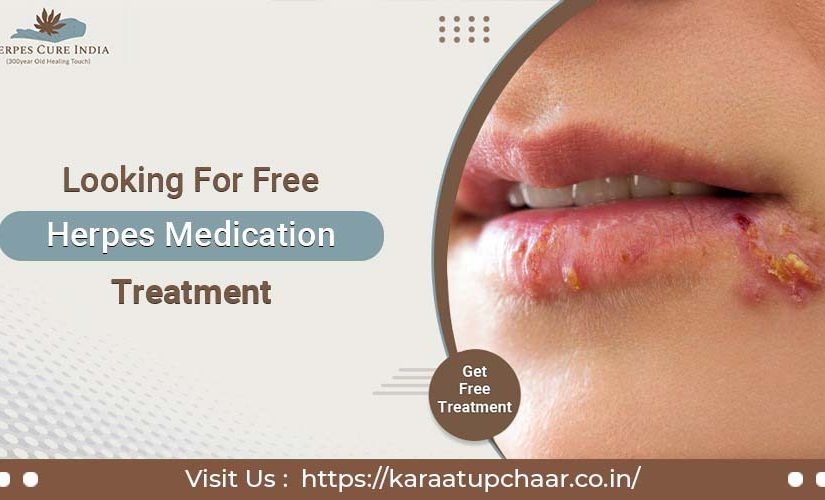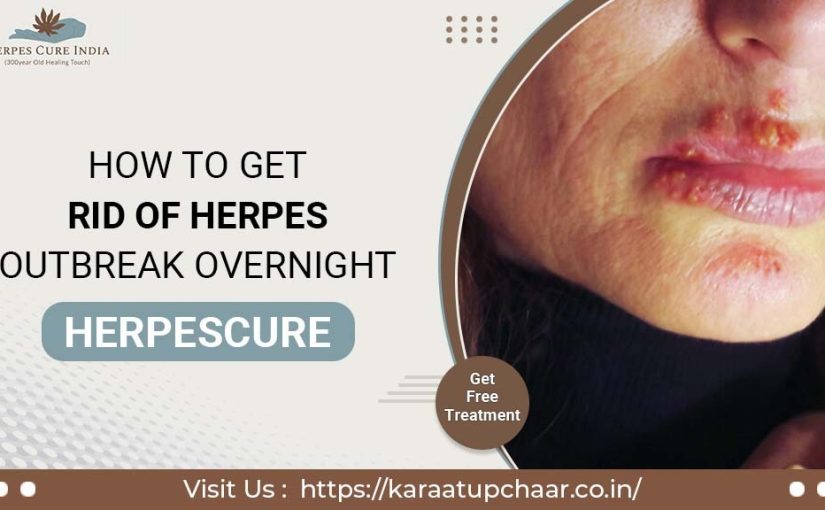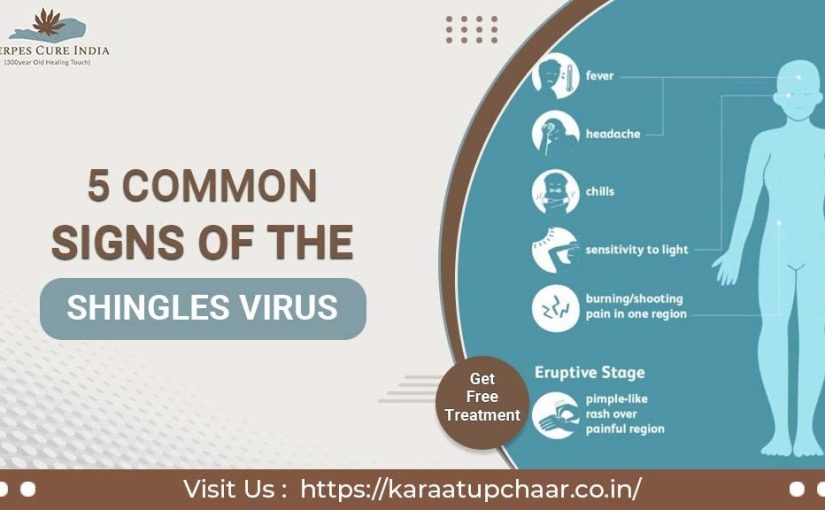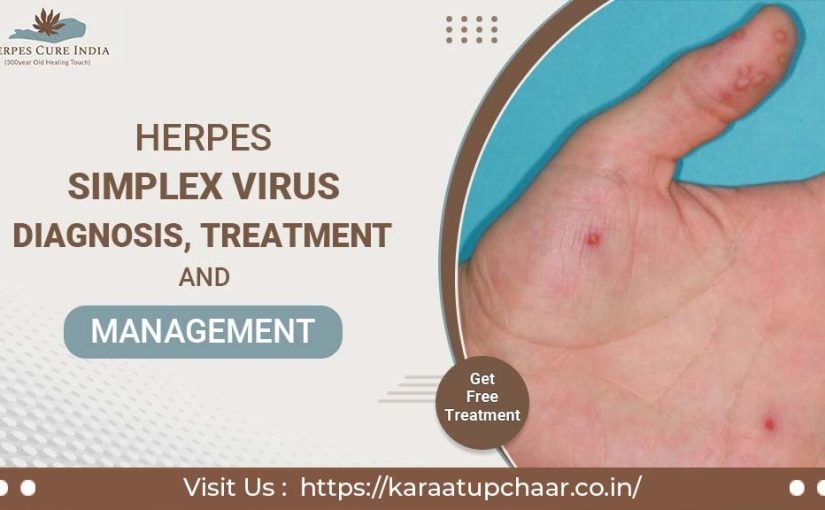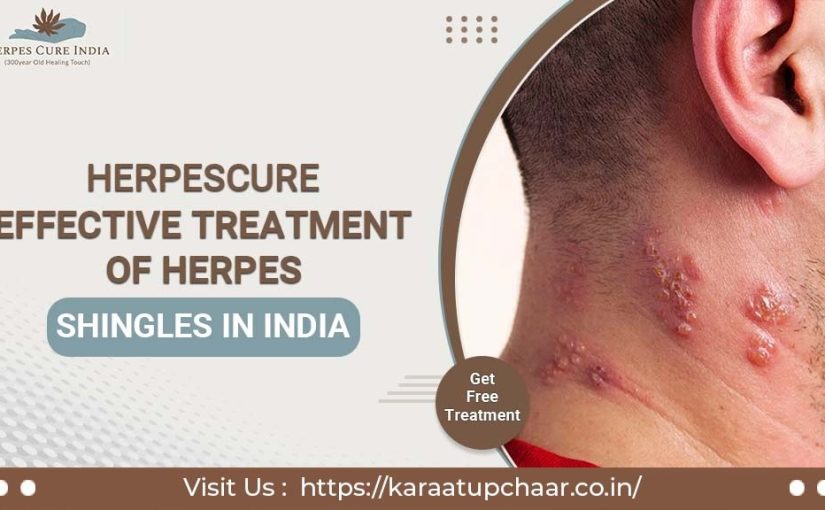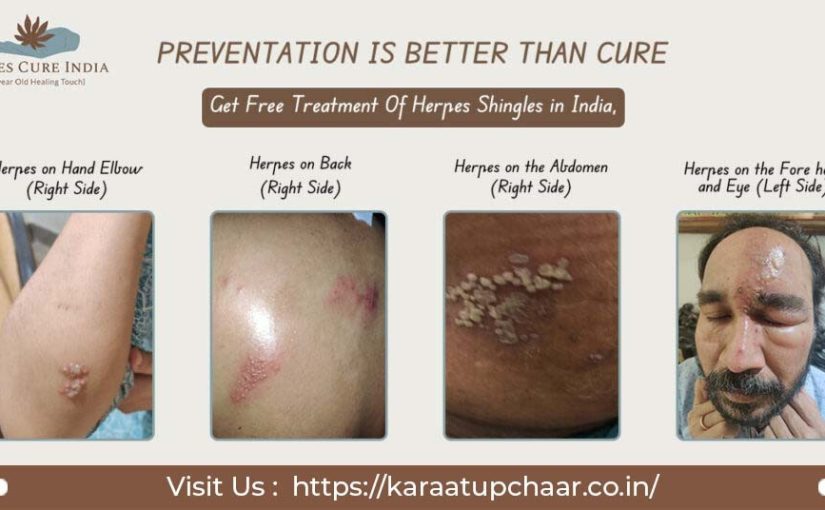
Looking For Free Herpes Medication Treatment?
We have antiviral oils available that can be used as a herpes medication treatment for herpes outbreaks, reducing the severity and duration of symptoms. These medications include acyclovir, valacyclovir, and famciclovir. They work by stopping the virus from replicating and spreading in the body.
Antiviral herpes medications are usually prescribed by a healthcare provider, and the dosage and duration of treatment depend on the severity and frequency of the outbreaks. This herpes medication treatment can be taken orally as pills or administered intravenously in severe cases.
It’s important to note that while this herpes medication treatment can help manage herpes outbreaks, they do not cure the infection, and the virus can still be transmitted to others even when there are no visible symptoms. Therefore, it’s important to practice safe sex, take free herpes treatment from us, and follow preventive measures to reduce the risk of transmission.
The main goals of herpes medication treatment are to reduce discomfort, encourage rapid healing, and prevent complications. Early herpes medication treatment lowers the likelihood of post-herpetic neuralgia. Antiviral herpes medication is initiated within 72 hours of the appearance of the rash. Famciclovir has been demonstrated to work better than valacyclovir at easing the pain.
The confinement of the patient and the treatment of skin lesions are other elements of therapy. Patients must be confined to prevent nosocomial infections.
What are Side Effects of Herpes Medication?
These side effects are generally mild and go away on their own after a few days of treatment. However, if you experience any severe or persistent side effects, it’s important to contact your healthcare provider right away. It’s worth noting that some people may have an allergic reaction to herpes medication, which can cause symptoms like hives, difficulty breathing, or swelling of the face, lips, tongue, or throat. If you experience any of these symptoms after taking herpes cure medication in India, seek medical attention immediately.
The common side effects of herpes medication are given below:-
- – Nausea and vomiting
- – Diarrhea or constipation
- – Headache
- – Dizziness
- – Fatigue
- – Abdominal pain
- – Skin rash or itching
- – Hair loss
- – Reduced kidney function
Which antiviral agents does help in herpes medication treatment?
These are the main herpes medication agents treated with antiviral drugs:
– Valacyclovir
– Famciclovir
– Acyclovir
These herpes medications lessen discomfort, hasten healing, and shield against post-herpetic neuralgia. Antiviral herpes medication works within 72 hours of the appearance of the shingles rash. Famciclovir has been demonstrated to be more effective than valacyclovir at easing the pain associated with acute herpes zoster. Using a 7-day famciclovir regimen, the soreness started to fade after 34 days. According to a study, oral acyclovir and valacyclovir were not associated with a greater risk of acute renal impairment than famciclovir.
Role of Corticosteroids in herpes medication treatment
Corticosteroid therapy is recommended in exceptional cases like acute zoster pain, Ramsay Hunt syndrome, and ocular sequelae. Combining corticosteroid therapy with an antiviral herpes medication improves its effectiveness. The combination of acyclovir and corticosteroids has demonstrated excellent success in the treatment of herpes zoster in both adults and children. Early therapy also speeds up the recovery of hearing.
Acyclovir and prednisolone may help reduce the rash and other immediate symptoms of herpes zoster, but it is not clear if they will help prevent long-term pain from post-herpes cure treatment neuralgia.
When should be given Herpes medication treatment?
Initial Herpes Treatment:
When genital herpes is first detected, a doctor may prescribe an antiviral medication for a short period (seven to ten days) to treat any existing symptoms or prevent them from worsening. If the sores have not healed after that period, the doctor may decide to extend your treatment. Talk to your doctor about the best way to take antiviral drugs after the first treatment has ended.
Intermittent Herpes Treatment:
If the doctor recommends an antiviral medication for you to keep in your medicine cabinet, you are receiving intermittent treatment. As soon as you see sores or a probable eruption, you may take the pills for two to five days. The drugs may make the sores less painful and go away faster, but the healing and fading process will happen anyway.
Suppressive Herpes Treatment:
You have to take an antiviral medicine regularly if you encounter a recurrent herpes outbreak. Suppressive therapy is the phrase used by medical professionals. In those who have more than six outbreaks annually, suppressive medicine has the potential to reduce the frequency of outbreaks by 70% to 80%. People who take antiviral drugs regularly often say that they never feel sick from the virus they are treating.
Herpes medication Treatment during Pregnancy
Acyclovir or valacyclovir can be used to treat herpes zoster when a pregnant woman has genital Herpes Simplex Virus. Acyclovir is the drug of choice (DOC) in early pregnancy because it lowers the risk of birth defects and preterm birth before 37 weeks.
A 28-week pregnant woman treated for herpes zoster neuralgia with acyclovir and acetaminophen gave birth to a healthy child two months later. Valacyclovir was well tolerated by a 17-week pregnant woman with herpes zoster. Newborns whose mothers have varicella or herpes shingles should get varicella zoster immune globulin between 5 days before and 2 days after giving birth. Even if the mother has experienced these issues in the past, this is still true.
Frequently Asked Questions (FAQ) About Herpes
Can herpes kill you?
Herpes, caused by the herpes simplex virus (HSV), is generally not life-threatening in most cases. The two main types, HSV-1 and HSV-2, cause oral and genital herpes, respectively. While these infections can be painful and cause discomfort, they typically do not pose a serious health risk for otherwise healthy individuals.
However, in certain circumstances, herpes can become more severe. For instance, herpes encephalitis, an infection of the brain caused by HSV, is rare but can be life-threatening without prompt treatment. Additionally, individuals with weakened immune systems, such as those with HIV/AIDS or undergoing chemotherapy, may experience more severe complications from herpes infections. Pregnant women with active genital herpes also risk transmitting the virus to their newborn during childbirth, which can be serious for the infant. Despite these potential risks, with proper medical care and antiviral medications, herpes is generally manageable and rarely fatal.
Can herpes be cured?
Herpes cannot be cured, as it is caused by the herpes simplex virus (HSV), which remains in the body for life. However, antiviral medications like acyclovir, valacyclovir, and famciclovir can manage symptoms, reduce the frequency and severity of outbreaks, and lower the risk of transmission. These treatments help control the virus, but they do not eliminate it. Good hygiene practices and avoiding contact during outbreaks can also help manage and reduce the spread of herpes. Despite the lack of a cure, many people with herpes lead healthy and normal lives.
Are herpes dangerous?
Herpes is generally not dangerous for most healthy individuals, but it can cause significant discomfort and complications in certain situations. Oral herpes (HSV-1) and genital herpes (HSV-2) typically cause painful sores and blisters but are not life-threatening. However, herpes can be more serious for:
1. Newborns: Neonatal herpes, transmitted from mother to baby during childbirth, can be severe and even life-threatening.
2. Immunocompromised individuals: People with weakened immune systems, such as those with HIV/AIDS or undergoing chemotherapy, may experience more severe and frequent outbreaks.
3. Herpes encephalitis: A rare but serious brain infection caused by HSV, which can lead to significant neurological damage if not treated promptly.
While herpes can cause complications, antiviral medications and proper medical care can effectively manage the condition and reduce risks.
If you want to get free herpes treatment from us, then visit our website-
Call Us –
- Trinagar Kamal Agarwal (Hargovind Chahcha) – 9013289821
- FD 46, Pitampura Prachi Agarwal – 9811718621
- Ramprastha, Vaisali, Noida Ravi Agarwal – 9911395464
.
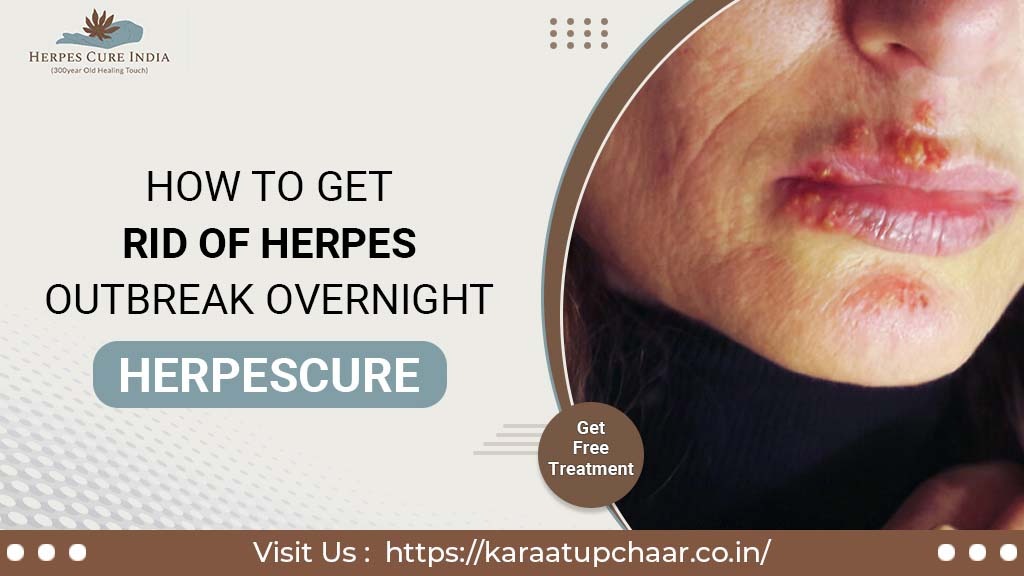
How to Get Rid of Herpes Outbreak Overnight
Unfortunately, getting rid of a herpes outbreak overnight is not possible, but with the help of antiviral drugs, you can reduce the symptoms within two to three days. Homeopathic remedies can also help treat the symptoms of a herpes outbreak by relieving discomfort, such as soothing aloe vera gel or lemon balm.
How to Get Rid of Herpes Outbreak: What You Need to Know
Herpes is an incurable virus that can only be managed by treating the symptoms and practicing self-care. Like most viral infections, herpes outbreaks take time to clear up. Herpes is considered a sexually transmitted infection (STI) and spreads through skin-to-skin contact with the affected area. It is most contagious during herpes outbreaks.
An outbreak can cause sores on or near the genitals or mouth, and touching these sores can spread the infection to others. These sores start out as itchy, painful, and intermittent blisters that can come and go.
Because outbreaks can last for a long time, herpes is highly contagious and uncomfortable. People often rush to resolve a herpes outbreak, hoping that those around them won’t notice. Unfortunately, the quickest way to get rid of Herpes is to consult with a doctor who can help you decide on the best treatment, whether it’s home remedies or antiviral medications.
Treating Herpes Symptoms: Options to Get Rid of Herpes Quickly
For treating herpes symptoms, especially if you have oral cold sores, over-the-counter creams such as Abreva or the antiviral drug penciclovir can be effective. However, it’s important to note that these treatments won’t completely get rid of Herpes but can help reduce the severity and duration of outbreaks.
Home Remedies to Get Rid of Herpes Symptoms
Home remedies, supplements, and lifestyle changes play a significant role in overall treatment of Herpes. Antiviral drugs can only do so much; maintaining overall health is key to effectively managing herpes.
A healthy diet designed to reduce herpes symptoms includes antioxidant-rich fruits and vegetables. Antioxidants help strengthen the immune system, prevent infection, and reduce inflammation that can trigger or worsen outbreaks. Foods such as spinach and blueberries are excellent sources of lysine, an amino acid that helps suppress herpes.
Omega Fatty Acids and Other Nutrients to Get Rid of Herpes Symptoms
Omega-3 fatty acids from salmon and flaxseed help fight inflammation and boost the immune system. Foods rich in vitamin C can speed up the healing of cold sores and increase the time between outbreaks. Colorful fruits and vegetables like peppers, mangoes, and oranges are rich in vitamin C and can help you get rid of Herpes symptoms faster.
While it’s best to get vitamins, minerals, and amino acids from food sources, dietary supplements can fill in potential gaps. A daily dose of zinc and lysine (an anti-herpes amino acid) supplements can help prevent breakouts, while vitamin B supplements can shorten the duration of an outbreak.
Certain foods and substances should be avoided if you want to get rid of Herpes more effectively. For example, the amino acid L-arginine, found in chocolate, can cause breakouts. Alcohol weakens the immune system, so it’s best to drink in moderation and avoid alcohol during outbreaks to speed healing. Highly acidic foods like lemons and beer can irritate open wounds and slow the healing process.
Final Words: How to Get Rid of Herpes Naturally
Foods high in added sugar, highly processed, or containing preservatives can affect how often herpes symptoms appear. Natural remedies can also help you get rid of Herpes symptoms. For example, heat compresses can relieve and heal herpes pain, while honey, a natural antibacterial agent, can be applied to wounds to help them heal and stay clean. Aloe vera gel, commonly used for sunburns, can relieve the pain and inflammation associated with herpes sores. Tea tree oil, a natural antibacterial agent, and witch hazel, a natural antiviral agent, can also be effective. However, these should be combined with ointments like Neosporin or petroleum jelly to avoid skin irritation.
If you want to get rid of Herpes quickly, Karaatupchaar is the best website for free and effective treatment. If you are tired of using too many medicines and ointments, Karaatupchaar offers a solution to help you overcome this problem. Karaatupchaar provides free and painless treatment across India. For further information, visit our website.
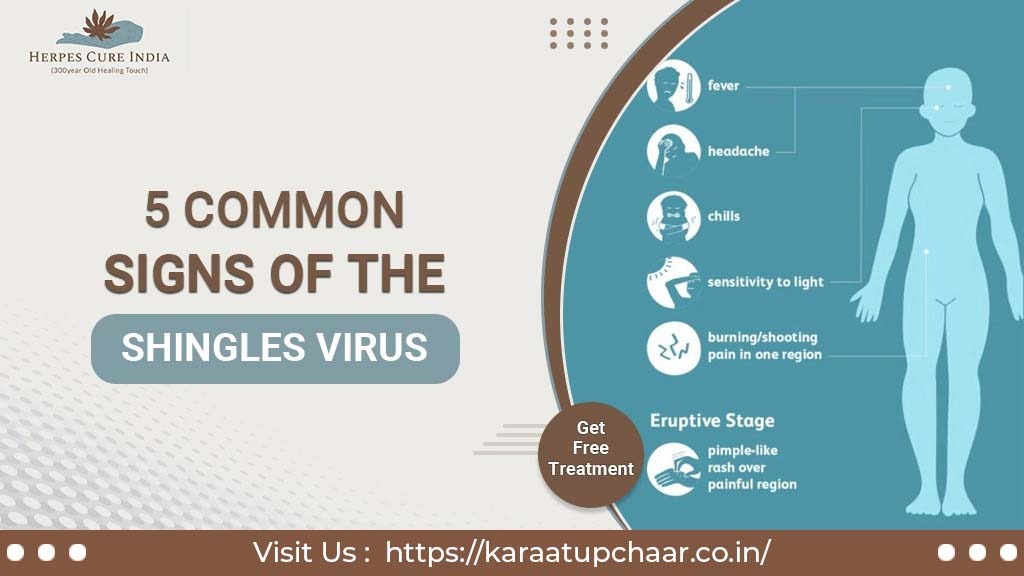
Herpes Shingles Rash: Know 5 Common Signs of the Shingles Virus
What is Shingles Rash? Understanding the Key Signs of Shingles Virus
Shingles Rash, also known as herpes zoster, is a painful skin condition caused by the varicella-zoster virus. It usually appears as a single stripe of blisters that wraps around one side of the body, but it can also develop on the face or other parts of the body. This shingles rash can cause severe pain and discomfort, as well as other symptoms such as fever and headache. It typically occurs in individuals who have had chickenpox in the past, as the virus remains dormant in the body and can reactivate later in life. Shingles affects nearly 1 million people in India each year. Recognizing the Signs of Shingles Virus is crucial for early treatment, which may include antiviral medications and pain management strategies.
How Can You Recognize the Signs of Shingles Virus?
The herpes shingles virus most commonly manifests as a shingles rash. Shingles is very similar to chickenpox, as both conditions are caused by the same virus. The rash typically consists of painful, fluid-filled blisters in a localized area of the body. This localization occurs because shingles affect specific nerve roots, and the rash most commonly appears on the chest, back, neck, and buttocks, where these nerve clusters are located. Recognizing these Signs of Shingles Virus early can help you seek appropriate treatment.
While the rash is the most apparent symptom of a herpes outbreak, it’s important to be aware that there are other significant Signs of Shingles Virus. Many patients report feeling generally unwell or experiencing flu-like symptoms in the days before the rash appears.
Numbness or Tingling: Early Signs of Shingles Virus
In addition to flu-like symptoms, many patients experience tingling or numbness before the shingles rash develops. These sensations typically occur in the same area of the body that is later affected by the rash.
These sensations can lead to extreme sensitivity to touch. Patients often report itching and burning sensations in the affected area. These symptoms are caused by the shingles virus infecting nerve roots, which respond to even minor stimuli. Patients may feel a burning or tingling sensation for no apparent reason, which are key Signs of Shingles Virus.
Nausea: A Common but Overlooked Sign of Shingles Virus
Nausea is one of the most common Signs of Shingles Virus. Many people experience nausea, especially when they eat or drink. Unfortunately, this symptom can escalate to a flu-like condition, though vomiting is relatively rare.
Instead, patients often experience severe stomach pain, diarrhea, and persistent nausea. Unlike the flu, nausea before a shingles outbreak is usually not accompanied by a fever. Recognizing this symptom early is crucial for starting herpes medication treatment as soon as possible.
Eye Complications: Critical Signs of Shingles Virus
Vision problems can occur when the shingles virus spreads to the nerves connected to the eyes. Patients may become extremely sensitive to light, which can be painful and is sometimes mistaken for migraine symptoms.
In more severe cases, the shingles virus can cause conjunctivitis (pink eye). When these signs of Shingles Virus occur, it is important to seek immediate medical attention. If left untreated, eye symptoms caused by shingles can lead to permanent vision problems. Although blindness from shingles is rare, it is still a possibility that should not be ignored.
Extreme Fatigue: One of the Early Signs of Shingles Virus
Extreme fatigue is another symptom often mistaken for the flu. Unexplained, intense fatigue frequently occurs in the days leading up to a shingles outbreak.
Unfortunately, many people respond to this symptom by increasing their caffeine intake, which only dehydrates the body and worsens fatigue. In rare cases, patients may experience confusion or even short-term memory loss during periods of extreme fatigue. Like the other Signs of Shingles Virus, severe fatigue should be treated by a doctor, regardless of whether the patient has the flu or not.
While Karaatupchaar offers free treatment for shingles rash, it’s important to pay attention to the Signs of Shingles Virus so that treatment can begin as soon as possible. Understanding these symptoms can help you take quick action.
If you’re concerned about a shingles rash and suspect it may be shingles, don’t hesitate to contact Herpes Cure today. Visit our website to book an appointment.
If you want to get free herpes treatment in India, visit our website or contact us:
Call Us:
Raj Dulari (Hargovind Chahcha) – 9954064243
Manoj Agarwal / Sushil Agarwal (Son) – 9435115363 / 9435015362
Kamal Agarwal (Hargovind Chahcha) – 9013289821
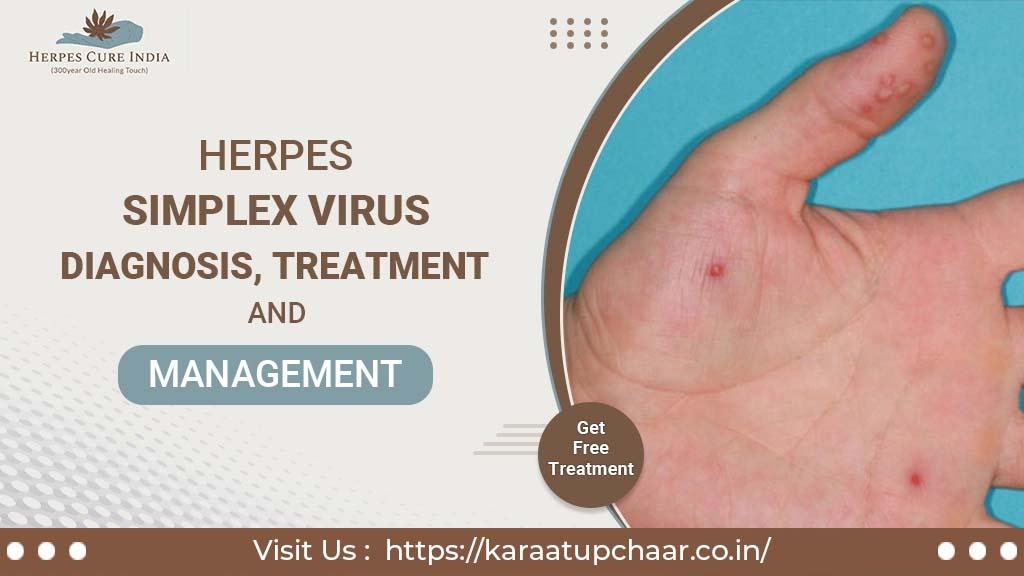
Understanding Herpes Simplex Virus Diagnosis and Treatment
Herpes simplex virus (HSV) is the causative agent of herpes infections. Oral herpes can cause cold sores on the lips or face, while genital herpes can affect the anal area, buttocks, and genital region. Shingles is another infection caused by the varicella-zoster virus, which is related to HSV. Herpes infections can also impact the eyes, skin, or other organs and are particularly dangerous for infants and those with weakened immune systems.
There are two distinct types of Herpes Simplex Virus:
Herpes simplex virus type 1 (HSV-1): Most often causes cold sores but can also lead to other conditions that require treatment.
Herpes simplex virus type 2 (HSV-2): Most commonly causes genital herpes but can also infect the mouth and other mucous membranes.
Herpes Simplex Virus Diagnosis typically involves physical examinations, laboratory tests, and possibly viral culture tests to determine the type of HSV infection and its location.
Transmission and Symptoms: How Herpes Simplex Virus Diagnosis is Made
HSV spreads through physical contact, and some people may experience no symptoms, while others develop painful sores at the point where the virus entered their bodies. Before healing, these sores turn into blisters, which can be extremely painful.
The vast majority of people experience outbreaks several times a year, though these occurrences become less frequent over time. Taking antiviral herpes medication treatment can reduce the severity and frequency of these outbreaks.
HSV-1 Treatment and Diagnosis
Oral herpes caused by HSV-1 can be diagnosed through physical examination and confirmed with lab tests if necessary. It is often transmitted through close contact with a sore, saliva, or other bodily fluids. People who come into direct contact with the affected area are at risk of contracting the virus.
Common ways HSV-1 spreads include:
- Kissing
- Oral sex
- Other forms of skin-to-skin contact
Sharing items like lip balm, razors, cups, and eating utensils is less common but still possible. The virus can survive outside the body for a few hours to a few days, but transmission through inanimate objects is rare.
HSV-2 Treatment and Diagnosis
Like HSV-1, HSV-2 (commonly associated with genital herpes) is transmitted through direct contact with herpes sores, saliva, or bodily fluids during an outbreak. Diagnosis is typically made through a combination of physical examination and lab tests.
Common ways HSV-2 spreads include:
- Kissing
- Oral sex
- Sharing sex toys
- Penetrative intercourse
- Skin-to-skin contact at the infection site
Although HSV-1 is typically associated with oral herpes and HSV-2 with genital herpes, both strains can cause either type of infection.
Recognizing the Symptoms: Key to Herpes Simplex Virus Diagnosis
Not everyone with HSV shows symptoms. Whether you have a primary infection or a recurrent one, symptoms can vary in severity.
Primary Symptoms of HSV:
After exposure, symptoms of a primary infection may appear within a few days to weeks. Early symptoms often resemble the flu and may include:
- Fever
- Swollen lymph nodes
- Body aches, such as headaches
- Fatigue
- Loss of appetite
- Localized pain at the infection site
Before blisters appear, you might feel tingling, burning, or itching at the infection site. These blisters can take up to six weeks to heal, and they remain contagious until fully healed. Sores often itch, and genital sores can make urination painful.
Recurrent Symptoms of HSV:
Recurrent symptoms are generally milder and heal more quickly as the body builds antibodies against the virus. Blisters that form during recurrent episodes may heal within days rather than weeks. Over time, symptoms become less severe, though they can still be uncomfortable.
Location of Symptoms: Crucial for Accurate Herpes Simplex Virus Diagnosis
The type and location of symptoms can help in making an accurate Herpes Simplex Virus Diagnosis. Both HSV-1 and HSV-2 can cause similar symptoms, but the location of these symptoms typically differs:
Genital HSV Infection: Pain or burning sensations during urination are common.
Oral HSV Infection: Eating spicy or acidic foods can be painful when sores are present in the mouth.
The site of oral blisters can also vary. Initial outbreaks may cause blisters on the mouth and lips, while later episodes often result in blisters along the edge of the lips.
Conclusion:
Accurate Herpes Simplex Virus Diagnosis is crucial for effective cure for Herpes Simplex and management of the infection. Whether you’re dealing with HSV-1 or HSV-2, recognizing the symptoms early and seeking appropriate medical care can help manage outbreaks and reduce their impact on your life.
For more information or to seek treatment, please contact us:
Call Us:
Raj Dulari (Hargovind Chahcha) – 9954064243
Manoj Agarwal / Sushil Agarwal (Son) – 9435115363 / 9435015362
Kamal Agarwal (Hargovind Chahcha) – 9013289821

Herpes Cure – Get Effective Treatment of Herpes Shingles in India
The primary goals of the treatment of Herpes are to relieve pain, promote rapid healing, and prevent complications. Starting antiviral treatment as soon as herpes is detected can reduce the risk of postherpetic neuralgia. Corticosteroids can help control pain and outbreaks, while other components of treatment include patient isolation and curative care of skin lesions to prevent nosocomial infection.
Antiviral Agents for the Treatment of Herpes
Antiviral medications such as acyclovir, famciclovir, and valacyclovir are commonly used in the treatment of Herpes. These drugs alleviate pain, speed up recovery, and prevent postherpetic neuralgia. Antiviral therapy should be initiated within 72 hours of the rash onset. Studies have shown that famciclovir may be more effective than valacyclovir in reducing the discomfort of acute herpes zoster. For instance, after 34 days on a 7-day famciclovir regimen, there was an early reduction in discomfort. Additionally, research has indicated that oral acyclovir and valacyclovir are not associated with a higher incidence of acute renal impairment compared to famciclovir.
Systemic Corticosteroids in the Treatment of Herpes
In certain cases, such as acute zoster pain, Ramsay Hunt syndrome, and ocular sequelae, corticosteroid therapy is recommended. Corticosteroid therapy is more effective when combined with antiviral drugs. The combination of acyclovir and corticosteroids has shown significant efficacy in the treatment of Herpes zoster in both adults and children. Early therapy with this combination also enhances hearing recovery.
For example, combining acyclovir and steroids to treat Ramsay Hunt syndrome has been shown to improve facial nerve function. Additionally, acyclovir and prednisolone treatment for herpes in people over 50 can improve their quality of life. While acyclovir and prednisolone may alleviate the rash and acute symptoms of herpes zoster, their long-term effectiveness in preventing post herpes neuralgia remains uncertain.
Effective Treatment of Herpes during Pregnancy
Herpes zoster can be treated during pregnancy with acyclovir or valacyclovir. In early pregnancy, acyclovir is considered the drug of choice (DOC) as it does not increase the risk of birth defects or preterm birth.
For instance, a 28-week pregnant woman treated with acyclovir and acetaminophen for herpes zoster neuralgia gave birth to a healthy child two months later. Another case involved a 17-week pregnant woman who responded well to valacyclovir during her Treatment of Herpes zoster.
Newborns whose mothers have varicella or herpes zoster between 5 days before and 2 days after giving birth should receive varicella-zoster immune globulin, even if the mother has had these conditions before.
Natural Home Remedies for the Treatment of Herpes
Essential Oils
Essential oils have been used for many decades for their therapeutic benefits, particularly for skin conditions. Certain essential oils contain compounds that may aid in skin healing and reduce inflammation, making them effective in the Treatment of Herpes. Some beneficial oils include:
- Chamomile essential oil
- Eucalyptus essential oil
- Tea tree essential oil
It is important to note that pure essential oils may cause allergic reactions in some individuals. Therefore, always perform a patch test before use. It’s also best to mix essential oils with a carrier oil or obtain a safe topical ointment from a pharmacy.
Cold Compresses
Applying cold compresses to the affected area can help relieve irritation and reduce swelling during the Treatment of Herpes. Soak a natural cotton cloth or towel in cold water, wring it out, and apply it to the sore, itchy areas. Repeat as necessary. It is advisable to avoid exposing the skin to extreme temperatures, such as hot showers or baths, to prevent further irritation.
Balanced Diet
A balanced diet rich in immune-boosting nutrients is essential in the treatment of Herpes. Consuming foods that are orange, red, or green, which contain carotenoids like lycopene, lutein, zeaxanthin, and provitamin A, can support immune function. Examples of such foods include:
- Orange foods: Carrots, pumpkins, and apricots.
- Red foods: Watermelon, red peppers, grapefruit, and cherries.
- Green foods: Kale, parsley, spinach, melon, lettuce, and endive.
Karaatupchaar: Expert Guidance for the Treatment of Herpes
Karaatupchaar provides a Medical Expert Board of board-certified physicians to review our articles and join us in our mission to make you confident in your health decisions. We offer free treatment of Herpes and empower you with the best answers to your most pressing questions, from understanding herpes virus infection diseases to managing new diagnoses and everything in between.
For more information or to seek treatment, please contact us:
Call Us:
Raj Dulari (Hargovind Chahcha) – 9954064243
Manoj Agarwal / Sushil Agarwal (Son) – 9435115363 / 9435015362
Kamal Agarwal (Hargovind Chahcha) – 9013289821
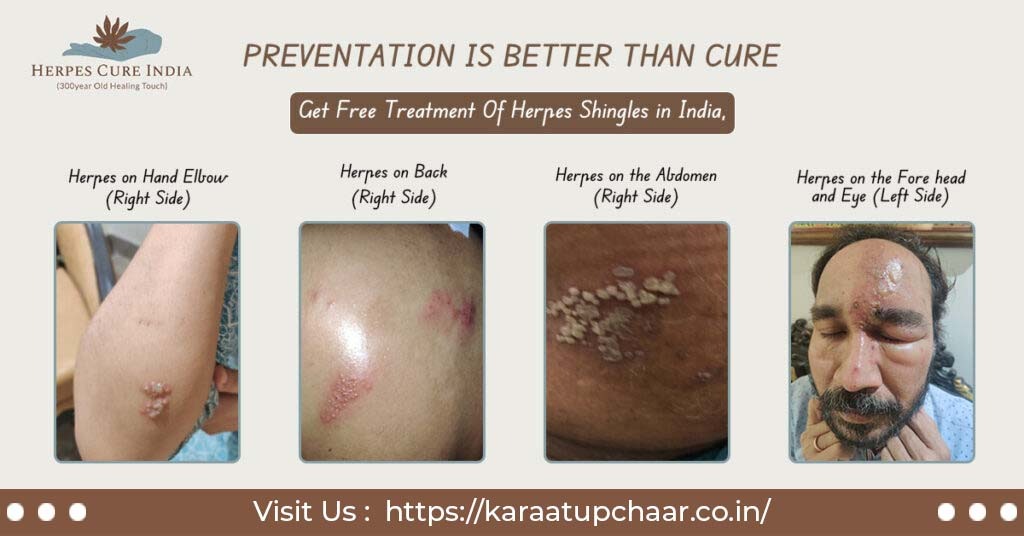
What are Herpes Shingles and Its Symptoms – Karaatupchaar
Understanding Herpes Shingles
Herpes Zoster, commonly referred to as Herpes Shingles, is a viral infection that affects the nerves and causes painful blisters on the skin. These blisters can appear anywhere on the body. Anxiety and nerve pain can persist for months after the rash clears up. The same virus that causes chickenpox is responsible for Herpes Shingles. After a person recovers from chickenpox, the virus remains dormant in the body and can reactivate years or even decades later to cause shingles. Approximately 90 percent of the population in the Indian subcontinent has had chickenpox, making them vulnerable to shingles. The risk of developing shingles increases with age, so the shingles vaccine is recommended for all healthy individuals over the age of 50. It is also recommended for people 19 and older who have weakened immune systems due to illness or treatment. Although possible, shingles in children are rare.
Who is Susceptible to Acquiring Herpes Shingles?
Those who have had chickenpox are at a higher risk of developing Herpes Shingles later in life. The likelihood of shingles increases under the following conditions:
- Weakened immune systems (e.g., individuals with cancer, HIV, organ transplant recipients, or those undergoing chemotherapy)
- People around fifty years of age or older
- Individuals who have been ill recently
- Those who have experienced trauma
- Individuals under significant stress or anxiety
After a chickenpox infection, the virus does not leave the body but instead lodges in the dorsal ganglia at the roots of the spinal nerves. Most people are unaware that the virus is still present in their bodies. The exact reason for the virus reactivating isn’t always clear, but it often happens during times of stress or when the immune system is compromised.
Symptoms of Herpes Shingles
Herpes Shingles is characterized by a red, itchy rash that typically affects only one side of the body or face at a time. Even before the rash appears, you may experience itching, burning, or tingling in the area where the rash will develop.
The impact of the infection on the nervous system can last for months or even years. The likelihood of experiencing long-term nerve pain increases with age, and the pain can be described as burning, throbbing, aching, or stinging. In some cases, Herpes Shingles may also cause conjunctivitis (pink eye) if the virus affects the eyes.
Early Symptoms of Herpes Shingles:
- Fever
- Chills
- Fatigue
- Sensitivity to light
- Uncomfortable feelings in the stomach
A few days after these initial symptoms, additional signs of Herpes Shingles may develop, such as:
- Itching or burning sensation in a localized area of the skin
- Discoloration of the affected skin
- A small, raised rash in the affected area
- Fluid-filled sores that eventually scab over
- Skin irritation ranging from mild to severe
Prevention is Better Than Cure: Get Vaccinated Against Herpes Shingles
Vaccination is the most effective way to prevent Herpes Shingles and reduce the risk of developing long-lasting pain if you do get shingles. The zoster vaccine is recommended for all healthy adults aged 50 and older, as well as individuals aged 19 and older who have compromised immunity due to disease or treatment. Even if you’ve had chickenpox before, the virus can still reactivate as shingles. Those who have had chickenpox are still eligible for the vaccine to prevent potential outbreaks. There is no specific time limit for receiving the shingles vaccine after having chickenpox, but it is generally recommended to wait until any active herpes outbreak has subsided before getting vaccinated. It’s always best to discuss the timing of vaccines with your healthcare provider.

